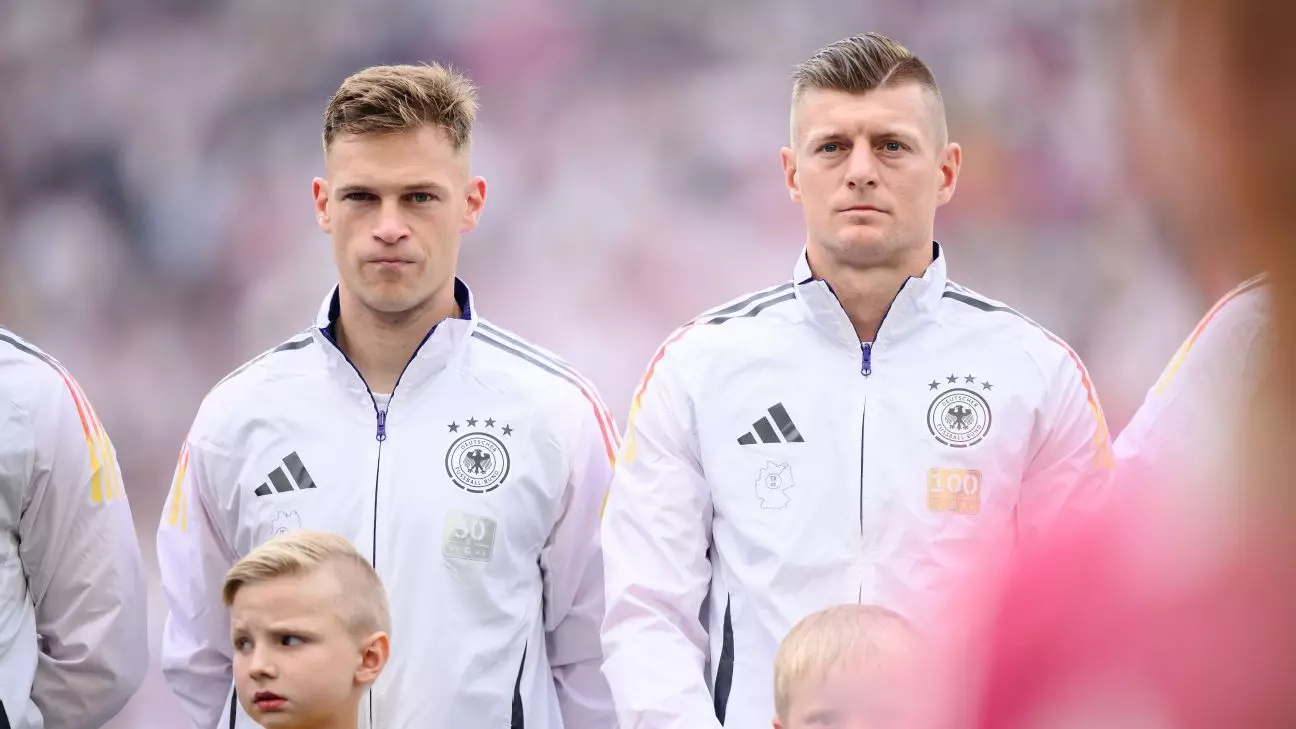Germany’s national team has undergone a significant change in leadership, with Joshua Kimmich being appointed as the new captain. This decision comes after the retirement of several senior players, including previous captain Ilkay Gündogan, following Euro 2024. Kimmich, along with vice-captains Antonio Rüdiger and Kai Havertz, will lead the team in the upcoming Nations League matches against Hungary and the Netherlands.
At 29 years old, Kimmich is taking on the role of captain for both Bayern Munich and the national team for the first time. Despite not having a permanent captaincy before, he has shown leadership qualities by stepping in when needed due to injuries or unavailability of other players. With 91 international games under his belt, Kimmich has already experienced wearing the captain’s armband 17 times, showcasing his readiness for this new responsibility.
Gündogan’s appointment as captain last year was followed by his retirement from international duties, marking the end of an era for German football. The departures of other key players like Manuel Neuer, Thomas Müller, and Toni Kroos have further paved the way for a new generation to step up. Coach Julian Nagelsmann identified Kimmich as the “logical successor” to Gündogan, highlighting his trust in the midfielder’s leadership capabilities.
Despite the significant changes in the team’s composition, Nagelsmann is focused on continuity and stability. With only one uncapped player in the squad for the Nations League, the coach aims to maintain a sense of familiarity amidst the transitions. Additionally, the decision to appoint Marc-André ter Stegen as the new starting goalkeeper in place of Neuer for the upcoming World Cup signifies a strategic shift towards long-term planning and succession.
The German national team is entering a new chapter with Joshua Kimmich at the helm, supported by a mix of experienced and emerging talent. As they navigate through upcoming challenges and competitions, the team’s leadership transition reflects a broader shift in strategy and vision for the future.

Leave a Reply